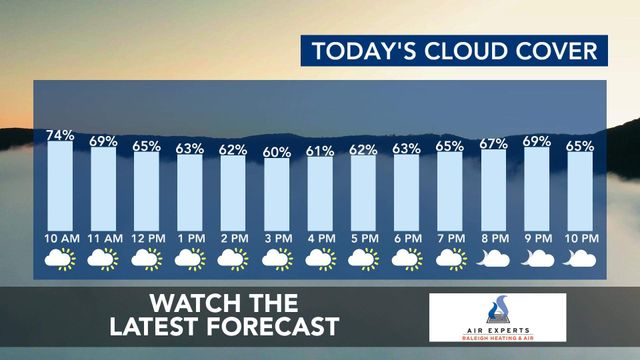Men make more in North Carolina no matter the job, data shows
Women’s wages continue lagging behind men.
Both nationwide and in North Carolina, women are making 84 cents for every dollar paid to men, according to the Department of Labor.
That’s 16 percent less than the median wages a full-time, white, non-Hispanic man is bringing home every year. The gap is even wider when we look at women from underrepresented communities. The wage gaps for Black women were 31 percent and 43 percent for Hispanic women.
The gap also varies on location and occupation. WRAL data trackers found census information that looks at the median income for men and women across more than 350 careers. Across the country, there are only 13 where, on average, a woman makes more than or equal to a man's income.
"Roles like caregiving where women are earning more than men, aren’t necessarily because they’re doing so well, it’s because there aren’t as many men in the workforce," said Lyric Thompson, the vice chair of the North Carolina Council for Women.
In our state, the data shows there aren't any sectors where we can confidently determine that.
"The gap is large and it persists," said Thompson.
While the gap for women in North Carolina is identical to what it is nationwide, it varies when we look at a county level. In Wake County, the gap is greater – women make 78 cents to a man's dollar. In Durham, the gap shrinks – women make 93 cents for every dollar a man makes.
When we look by sector, women in North Carolina who work in the legal professions – paralegals, lawyers and legal assistants – make 49 cents for every dollar a man makes; those who work in transportation, 62. They're among the careers with the widest gap.
"The cards are stacked us from the very beginning," said Thompson. She added that it starts when kids are young and the chores they’re assigned.
"From the early age, girls are doing work to care and boys are learning to associate their labor with income and to ask for that," she said. "Then you fast forward your first entry into the workforce. At your first job, women are less likely to negotiate their first wage, and then that has effects for the rest of their lives."
That trickles down to the broader economy. For instance, the Department of Labor says the gap between white men and Black or Hispanic women results in more than $90 billion lost in wages for women in those two groups. Less money earned means less money to spend and less wealth to accrue.
"If you’re starting at a lower rate of compensation, that’s less money you’re saving for retirement, less for a house," she explained.
In the state, there are more single women living alone than men but single women living alone have a median income that is almost $8,000 less. While North Carolina ranks 13th when it comes to pay gap, it actually ranks last for working women policies, according to Oxfam.
"Well, the good news is when you’re doing as poorly as we are, there are a lot of things you can do to improve," said Thompson who then explained that the state provides little protection for women so even policy changes like having more pay transparency would be effective and beneficial.











